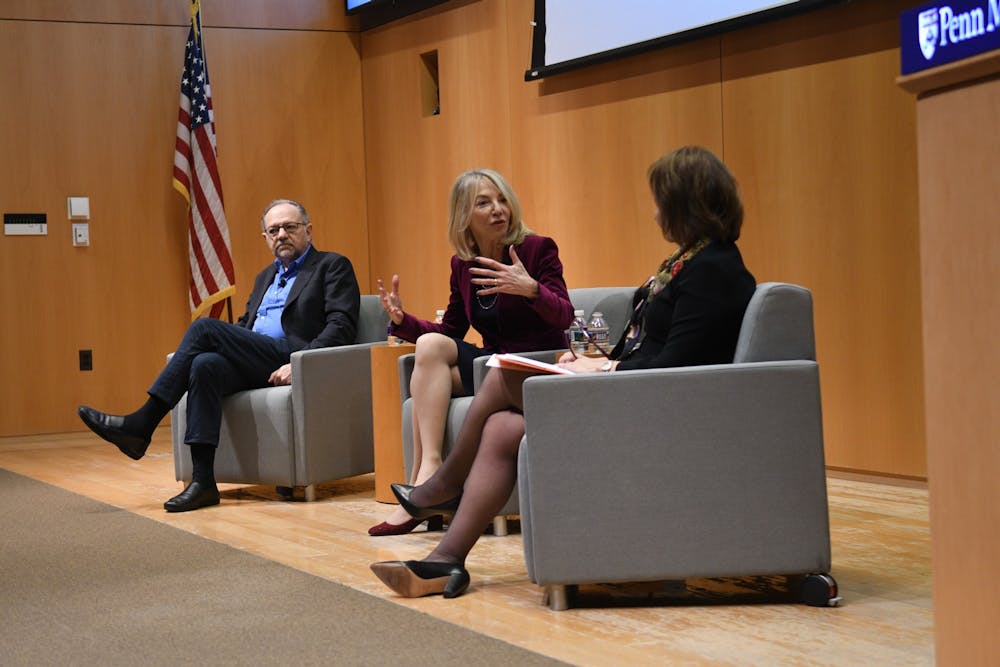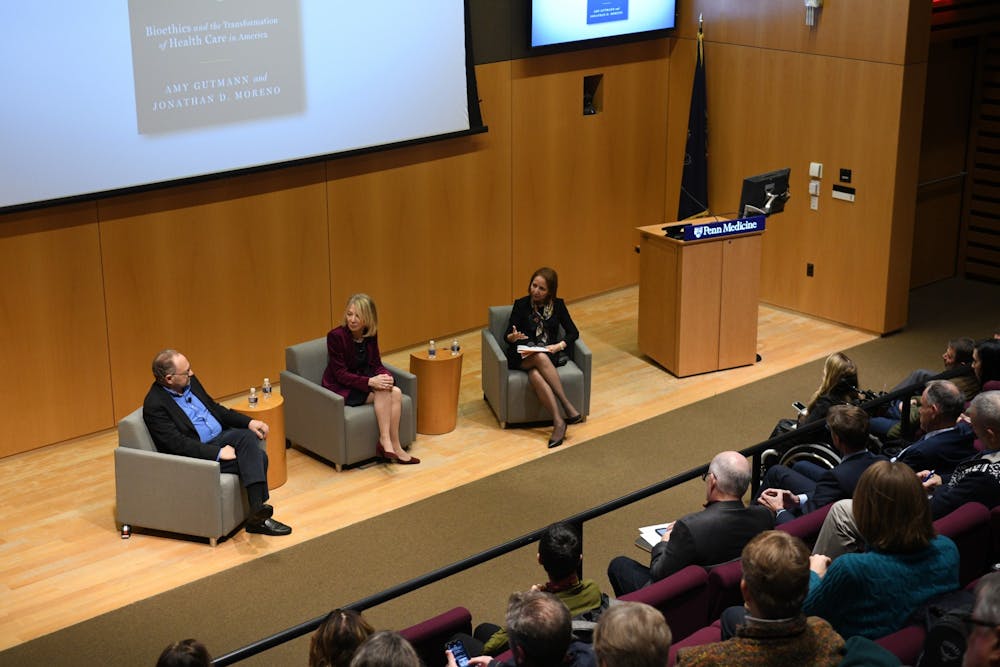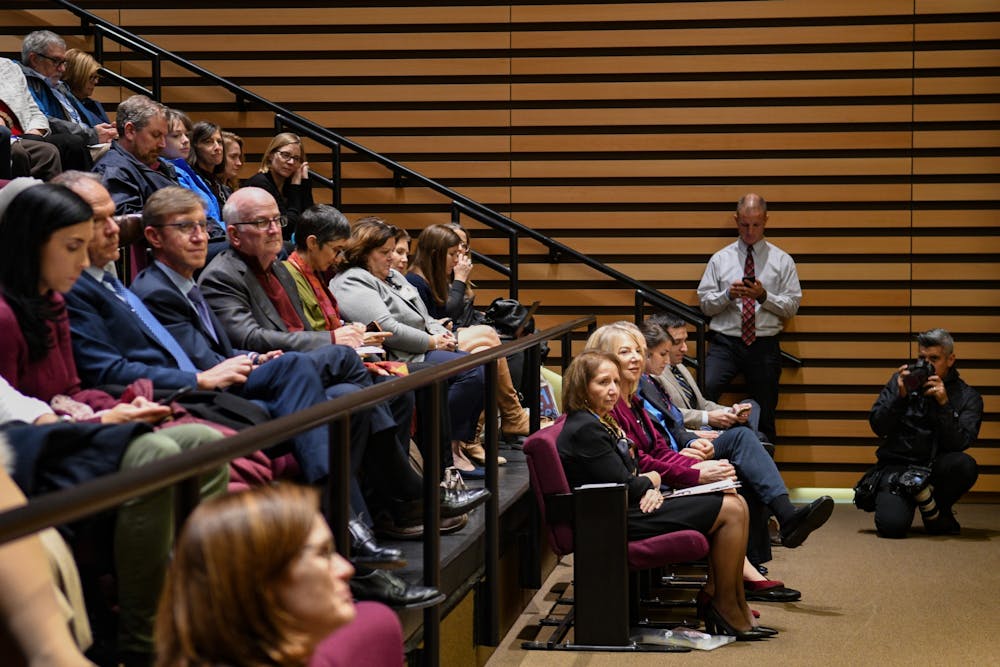
Perelman School of Medicine professor of Medical Ethics and Health Policy Jonathan Moreno (left), Penn President Amy Gutmann (center), and School of Nursing Dean Antonia Villarruel (right).
Credit: Katharine CocherlPenn President Amy Gutmann highlighted the effects that changing bioethical standards have on the medical field at a Tuesday evening book talk in the Smilow Center for Translational Research.
Gutmann and Jonathan Moreno, a professor of Medical Ethics and Health Policy, discussed their new book “Everybody Wants to Go to Heaven but Nobody Wants to Die: Bioethics and the Transformation of Health Care in America.” The book, published in August, explores how bioethics has affected the development of the United States health care system. In a conversation moderated by School of Nursing Dean Antonia Villarruel, Gutmann and Moreno discussed the evolution of bioethical standards and criticized the high cost of American health care today.
When discussing the evolution of bioethical standards, Gutmann mentioned former Perelman School of Medicine professor Albert Kligman, a dermatologist who developed the popular acne medication Retin-A. Between 1951 and 1974, Kligman conducted experiments at the Holmesburg Prison in Philadelphia that were not illegal at the time but led to federal regulations limiting medical experiments on prisoners, the New York Times reported.

“Our health care system is an ethical mess,” Gutmann said.
Gutmann said J. Larry Jameson, executive vice president of the University of Pennsylvania Health System and dean of the Medical School, hopes to form a working group to explore how to better expose the legacy of Kligman's experiments.
"Those experiments were wrong," Gutmann said. "He didn't treat those prisoners as people; he treated them, as he called [them], 'acres of flesh.'"
Moreno and Gutmann said the integration of ethics in medicine has led to the development of regulations that give patients more agency in their medical treatment.
“Doctors and nurses are medical experts, but they are not experts in us, and they are not moral experts," Gutmann said. "We all have to take the ethics of health care seriously because is about the lives of our loved ones, ourselves, our society. That’s why we wrote the book."
Both authors were also highly critical of the current state of health care in the United States.

Moreno and Gutmann said the integration of ethics in medicine has led to the development of regulations that give patients more agency in their medical treatment.
“Our health care system is an ethical mess,” Gutmann said. “We are the only advanced industrial society that doesn’t even afford people that have catastrophic illnesses insurance that covers that. Plus, while our government is the largest payer, we don’t authorize Medicare to negotiate on the basis of cost-effectiveness.”
Gutmann expressed preference for a public option system that is affordable and allows people to retain private insurance plans.
“If Medicare for All were feasible in this country in the near term, I’ll speak for myself: I’ll support it,” Gutmann said.
College freshman Talia Fiester said she appreciated the political implications of Gutmann's discussion.
“Some of the comments on health care were really interesting, given that it [is] a focal point of the 2020 election," Fiester said.

Attendees were also invited to submit questions for the authors, which were asked in the second part of the event.
Fiester added that while her own views differ from Gutmann’s, she acknowledges the merit of having conversations about health care.
“I definitely would say that I think it is good to have disagreements and that disagreements lead to important dialogue," she said. "I think that is one of the things I would love to talk to her more about.”
Attendees were also invited to submit questions for the authors, which were asked in the second part of the event.
College senior Edward Rodriguez asked how Gutmann’s role as University President has influenced her views on the ethics of health care. Gutmann said her time at Penn has helped her appreciate people who are dedicated to improving the medical field.
“What Penn has taught me is how important it is to bring basic research through to the patient and how working in teams is lifesaving in medicine,” Gutmann said. “When science partners with ethics, great things can come.”
The Daily Pennsylvanian is an independent, student-run newspaper. Please consider making a donation to support the coverage that shapes the University. Your generosity ensures a future of strong journalism at Penn.
Donate







